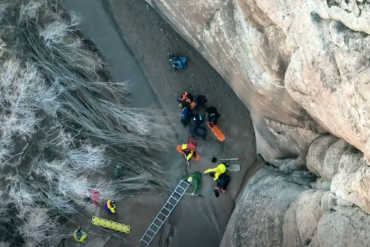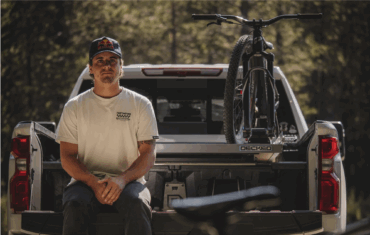Are you brainstorming how to dial in your campervan setup? Whether you’re taking a road trip or living out of your vehicle full time, here are some tips and tricks to make the experience better.
New to the van life? Similar to other outdoor pursuits, living out of a van requires learning how to dial in your gear system. Even if some of that gear includes less glamorous living essentials (hello, water pumps).
If you’re wondering how to take it to the next level, I’ve got some ideas to make van life more livable. Here are a few gear items that will make your van feel more like home.
Solar Panels and Solar Lights
The Chevy Express 2500 built-out van I rented for a week had two solar panels on the roof. These provided 15V to a two-USB and 5V charging outlet. It also powered amperage for three solar lights, a water pump for running water, and a mini-fridge — all day and night.
Not having to worry about where I’d charge my devices, how I’d store food, and if I had to haul and use a generator, etc., was a major perk.
Definitely look into solar panel brands Renogy, Goal Zero, Jackery, and Bluetti.
Now, if you are building out your own Sprinter or campervan, you’ll want to keep in mind that rooftop solar panels take up space. If you have bigger gear to haul — like bikes or boards — you’ll want to look into hitch or side racks, or maybe even interior storage for items that will be displaced by panels.
If you don’t opt for solar panels on your build, consider other solar accessories — solar-powered camp lights are super useful.
What if you’re driving an electric vehicle? Can solar panels charge that? Our friends at Bikerumor dove in to find out — see what they found out.
A Sturdy Multiuse Blanket

On a recent road trip, I brought along my Tarpestry: a gorgeous, rugged, tapestry-style 1,000-denier nylon outdoor blanket. In 7 days, I used it as a beach blanket, picnic blanket, tablecloth, and exterior floor mat to extend my van’s livable space.
Not having to take my shoes on and off to enter the van, as well as having somewhere to sit at a dispersed campsite or on a midday hike along the coast — these were all super great perks to having this around.
Bonus points for a blanket or tarp (like the Tarpestry) that has grommets on the corners for staking or weighing down on nearly any surface.
A Wi-Fi/Signal Booster
This is the one luxury item/accessory that I didn’t have on my recent trip. And let me tell you, having one would have been a game-changer. Especially if you’re spending even just a small period of time off-grid. When it comes to cell service, you just never know.
I spent 5 workdays working and testing gear off-grid in a cluster of national and state parks, hoping that I’d get pockets of service here and there, in addition to places with Wi-Fi. Nope, nada.
Productivity did not win out in the long run. Instead, nature did. If you are venturing out — like, really out there — make sure you have a way to stay in touch and connected, whether you are working, just spending a weekend, or taking a holiday.
It’s worth looking into hotspots and boosters from Sure Call (like the Fusion2Go) and WeBoost.
Or, opt for off-grid life entirely and forego our connected world. Also an option, and not a bad one (if you don’t need the internet connectivity).
A Clothesline & Clothespins

This is a super-convenient accessory I didn’t immediately think to pack. I was able to air dry all of the socks and shirts I washed on my trip, as well as a towel. I had clips to hang items, but some paracord or a designated clothesline would have been extra functional.
When your whole home is the van and the outdoors (and if you don’t want to spend time at a laundromat), clotheslines are where it’s at.
An Open Mindset
Be flexible and have a positive attitude. This is sometimes easier said than done, especially if you are just learning the ropes of a living-on-the-road lifestyle.
These are just a few things I’ve learned and would recommend. Remember to embrace the little moments, and seek out solitude when you can.
Plan ahead, but not too strictly. This includes things like knowing where you are and aren’t allowed to disperse camp, as well as factoring in time for things like traffic and weather. And have a backup plan — whether it’s for what you’ll cook, where you’ll camp, or when you decide to take your van for a spin.
I hope some of these tips help! The open road and the outdoors are your oysters — go forth, and enjoy.











